L-carnitine
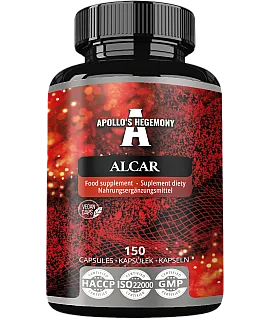

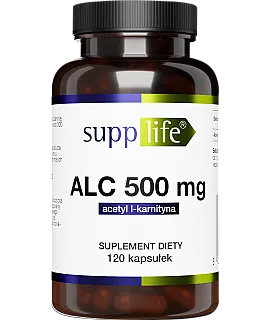
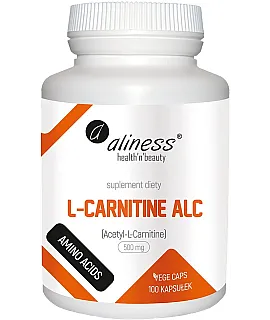
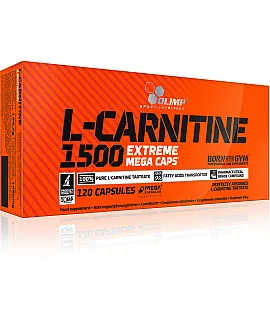
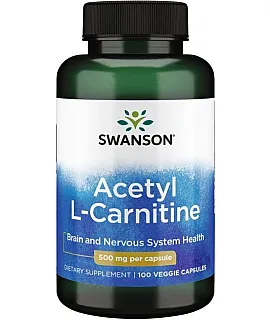
L-carnitine is a dietary supplement that is very popular among people who care about their health and figure. This natural substance plays a key role in fat metabolism, supporting the fat burning process. Available in convenient capsule form, l-carnitine is often chosen by people who want to lose weight or improve their physical performance.Read more
What is l-carnitine and how does it work?
L-carnitine is an organic chemical compound and amino acid that occurs naturally in the human body. It is synthesized in the liver and kidneys from two amino acids: lysine and methionine, with the help of vitamin C and iron. L-carnitine plays an important role in metabolism, being responsible for transporting long-chain fatty acids to the mitochondria, where they are burned, providing energy.
Supplementation with l-carnitine is particularly popular among people who want to lose weight. It is worth noting that l-carnitine occurs naturally in some foods, such as meat, fish and dairy products. However, people on diets poor in these foods or with carnitine deficiencies may want to consider supplementation in capsule form.
For whom is l-carnitine supplementation intended?
Dietary supplements containing l-carnitine are mainly intended for adults who want to help supplement l-carnitine in their diets. They are especially recommended for people on weight loss diets, athletes and physically active people.
Before starting l-carnitine supplementation, it is a good idea to consult a doctor or nutritionist, especially if you have a chronic disease or are taking medications. Please note that dietary supplements cannot be used as a substitute for a varied diet and the recommended daily serving should not be exceeded.
Supplementation with l-carnitine is not recommended for children, pregnant and breastfeeding women. In these cases, consult your doctor before possibly starting the supplement.
How to dose l-carnitine?
Dosage of l-carnitine depends on individual needs and supplementation goals. The most common dosage is 500-1000 mg per day, taken in one or more servings. It is worth choosing high-quality supplements that contain pure l-carnitine, preferably in the form of tartrate.
It is recommended to take l-carnitine on an empty stomach, 30-60 minutes before a meal or workout. This allows for maximum absorption of the substance. It is also important to properly hydrate the body during l-carnitine supplementation.
Note that l-carnitine supplementation should be combined with a balanced diet and regular physical activity. Taking a supplement alone is not a substitute for a healthy lifestyle and does not guarantee the desired results.
Potential benefits of l-carnitine supplementation
Supplementation with l-carnitine can bring a number of health and figure benefits when its deficiency is corrected. First of all, naturally occurring carnitine is involved in fat metabolism and energy production, which is its most important biological function.
Potential side effects and contraindications
Supplementation with l-carnitine is generally considered safe for health, as long as it is used as recommended. However, in some cases, some side effects may occur, such as stomach discomfort, diarrhea or body odor.
There are also some contraindications to the use of l-carnitine. These include liver and kidney disease, epilepsy and blood clotting disorders. If you have these conditions or are taking medications, consult your doctor before starting supplementation.
It is important not to exceed the recommended daily dose of l-carnitine, as excess of this substance can lead to negative health effects. Dietary supplements containing l-carnitine should be kept out of the reach of small children.
The most important information about L-carnitine is:
- L-carnitine is a natural amino acid involved in fat metabolism.
- Dietary supplements with l-carnitine are often chosen by people on weight-loss diets.
- The recommended dosage is 500-1000 mg per day, preferably taken on an empty stomach before a meal or workout.
- Beware of potential side effects and contraindications, such as liver disease, kidney disease or blood clotting disorders.